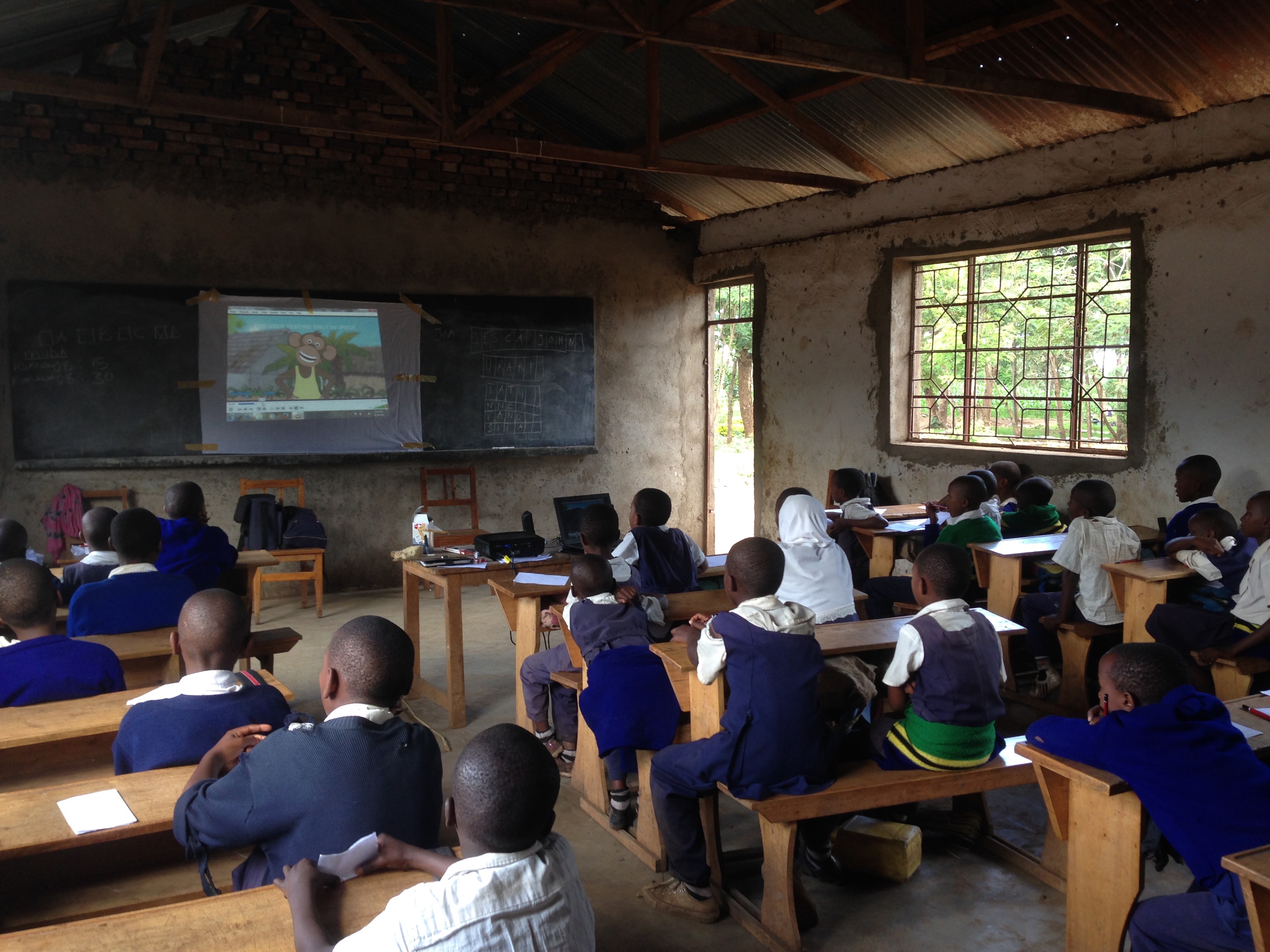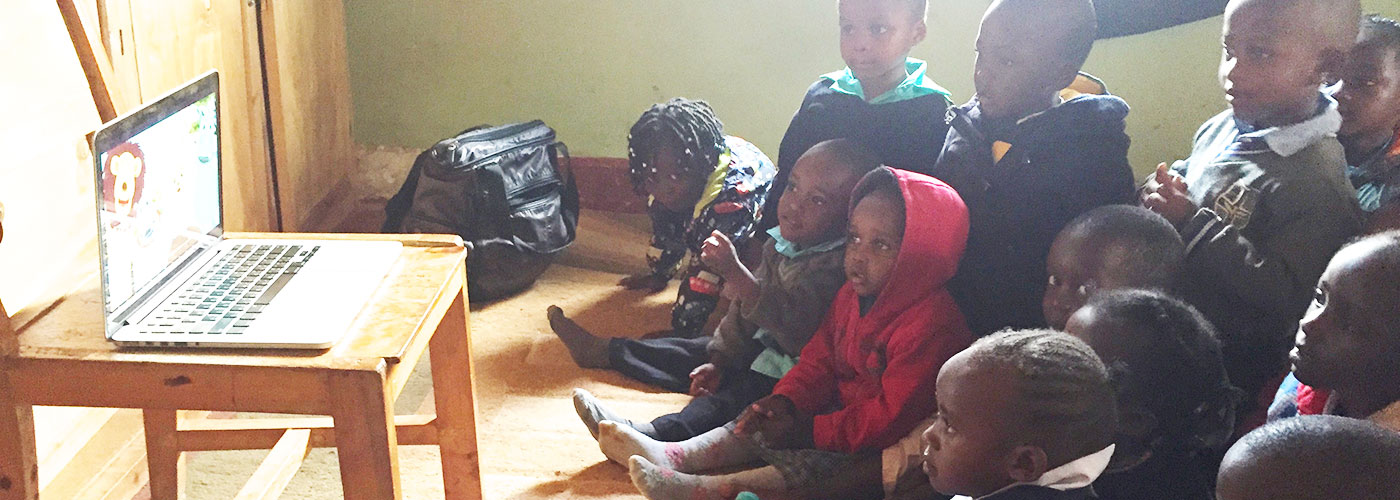Kids need the resources and motivation to learn at a low cost and massive scale. Tweet This Quote

Schoolchildren in Tanzania watch an Ubongo animated television show. Photo courtesy of Ubongo.
Kids are going to be the new leaders who will solve the problems we face now and into the future. Tweet This Quote



